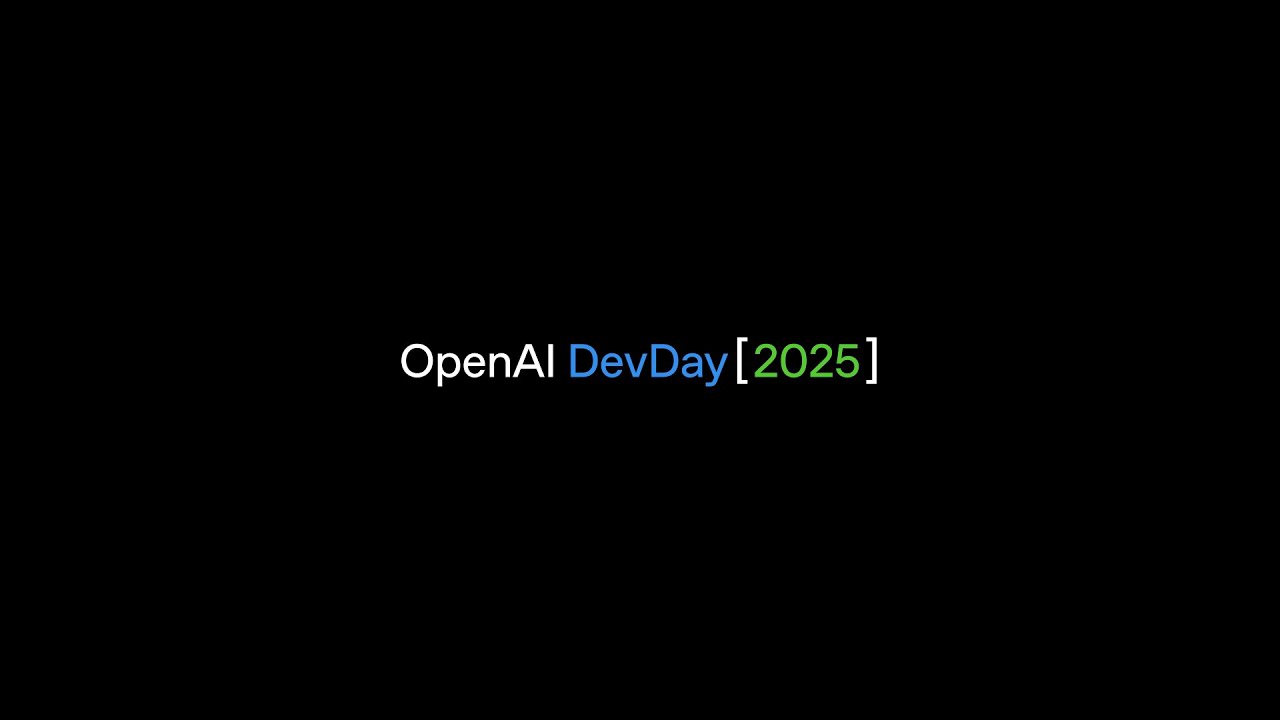At OpenAI DevDay 2025, Sam Altman highlighted the rapid growth of the OpenAI developer ecosystem and introduced key innovations including the Apps SDK for building interactive apps within ChatGPT, AgentKit for easy AI agent creation, the advanced GPT5-Codex for software development, and new powerful models like GPT5 Pro and Sora 2 for complex reasoning and video generation. These advancements aim to simplify AI integration, enhance productivity, and empower developers to create sophisticated AI-powered applications accessible to a broad audience.
At OpenAI DevDay 2025, Sam Altman opened the keynote by celebrating the tremendous growth of the OpenAI developer ecosystem, highlighting that from 2 million developers and 100 million weekly ChatGPT users in 2023, the numbers have surged to 4 million developers and over 800 million weekly users today. The API now processes over 6 billion tokens per minute, marking a significant acceleration in AI adoption. The focus of the event was on making it easier for developers to build with AI, introducing four key areas: building apps inside ChatGPT, faster and better agent creation, simplifying software development, and updates to models and APIs.
One of the major announcements was the launch of the Apps SDK, which allows developers to build fully interactive, adaptive, and personalized apps directly inside ChatGPT. This SDK is built on the MCP open standard and enables apps to connect data, trigger actions, and render rich user interfaces. Apps built with this SDK can reach hundreds of millions of ChatGPT users, with features like seamless login, monetization options including instant checkout, and app discoverability through conversation suggestions. Live demos showcased integrations with popular platforms like Coursera, Canva, and Zillow, demonstrating how users can interact with apps inline within ChatGPT conversations, enhancing productivity and creativity.
The keynote also introduced AgentKit, a comprehensive platform designed to simplify the creation, deployment, and optimization of AI agents. AgentKit provides a visual workflow builder, embeddable chat interfaces via ChatKit, and evaluation tools to measure agent performance. Real-world examples included Albertsons using agents to analyze sales trends and HubSpot enhancing customer support with AI-driven responses. A live demo illustrated how quickly an agent could be built and deployed to assist users in navigating DevDay sessions, showcasing the ease of adding tools, widgets, and guardrails to ensure trust and reliability.
Another highlight was the evolution of Codex, OpenAI’s AI-powered software engineering assistant, now running on the advanced GPT5-Codex model. Codex has become an indispensable collaborator for developers, integrated across IDEs, terminals, and platforms like Slack, helping teams write, refactor, and review code more efficiently. Usage has skyrocketed, with enterprises like Cisco reporting significant improvements in code review speed and project timelines. A live demonstration showed Codex building a complex camera control system from scratch, integrating voice commands, gamepad controls, and real-time API interactions—all without manual coding, illustrating the transformative potential of AI-assisted software development.
Finally, OpenAI unveiled updates to its models, including the release of GPT5 Pro in the API, designed for high-accuracy, complex reasoning tasks in domains like finance, legal, and healthcare. They also previewed Sora 2, a powerful video generation model capable of producing stylized, controllable videos with synchronized soundscapes, now available in the API for creators and developers. The keynote concluded with a vision of a new era where software and creative content can be built rapidly and by anyone with a good idea, emphasizing OpenAI’s commitment to making AI useful and accessible for everyone. Sam Altman thanked the developer community and the OpenAI team, encouraging everyone to explore the new tools and build the future of AI-powered applications.
